Complete Solutions to Check point 5.2 of chapter LAWS OF MOTION of Class 11 book with complete answers and questions
| Class 11 | PHYSICS |
| Chapter | LAWS OF MOTION |
| DC PANDEY NEET | Check point 5.2 |
| Number Of Questions | 15 |
| Academic Year | 2023-24 |
Four forces act on a point object. The object will be in equilibrium, if
View SolutionA block of mass 10 kg is suspended by three strings as shown in figure . Tension `T_(2)` is
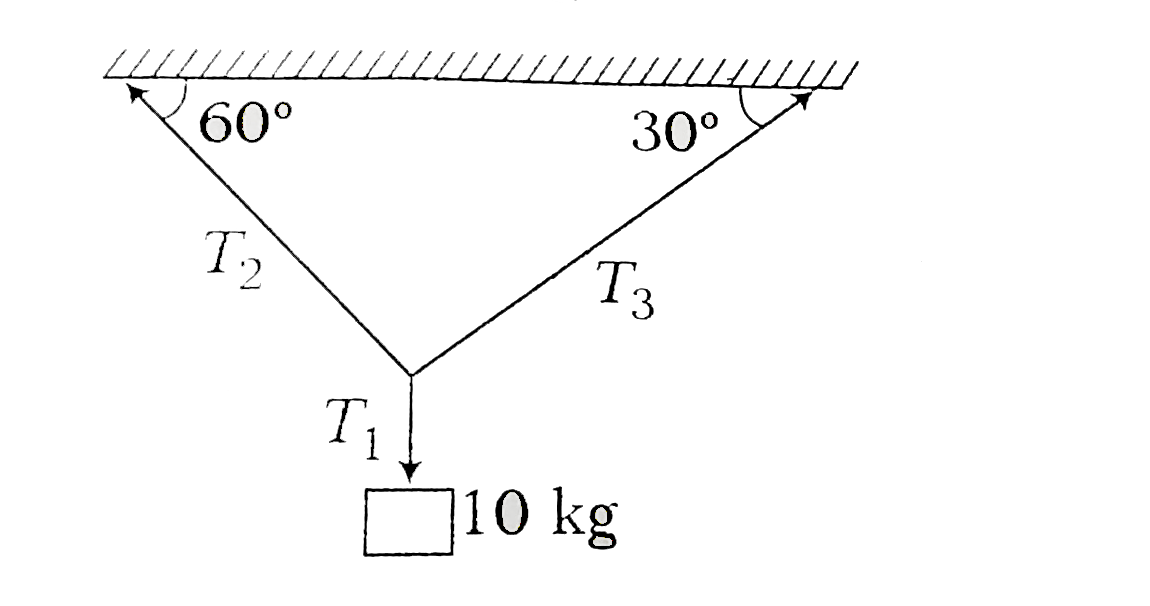
View SolutionAn object is resting at the bottom of two strings which are inclined at an angle of `120^(@)` with each other. Each string can withstand a tension of 20 N. The maximum weight of the object that can be sustained without breaking the string is
View SolutionThe pulley and sttrings shown in figure are smooth and of negligible mass For the system to remain in equilibruim the angle the angle `theta` should be
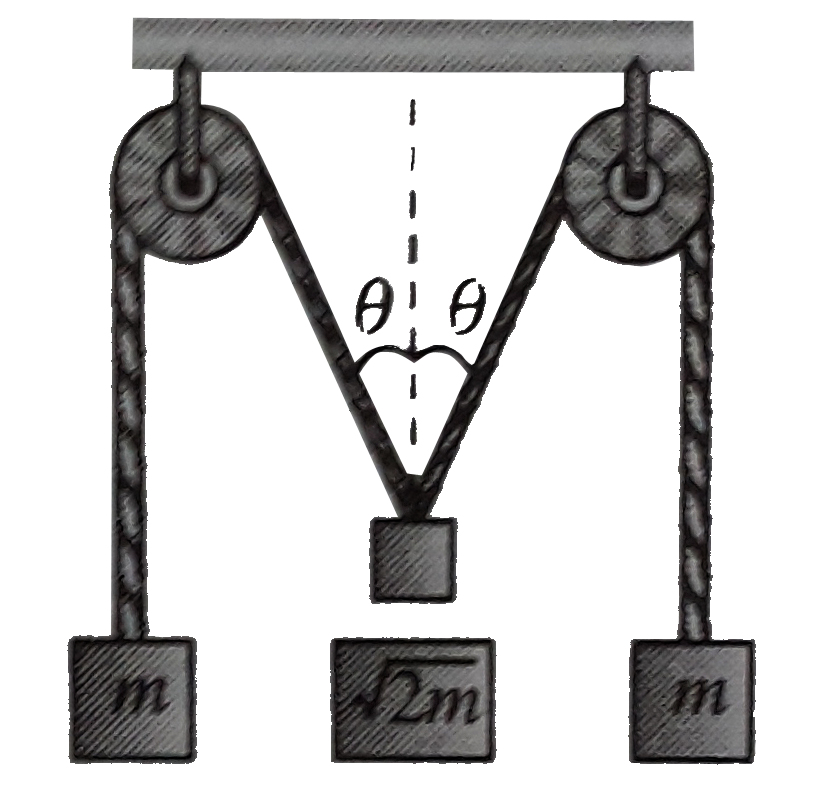
View SolutionA non-uniform rod AB of weight w is supported horizontally in a vertical plane by two light strings PA and QB as shown in the figure.G is the centre of gravity of the rod. If PA and QB make angles `30^(@)` and `60^(@)` respectively with the vertical, the ratio `("AG")/("GB")` is
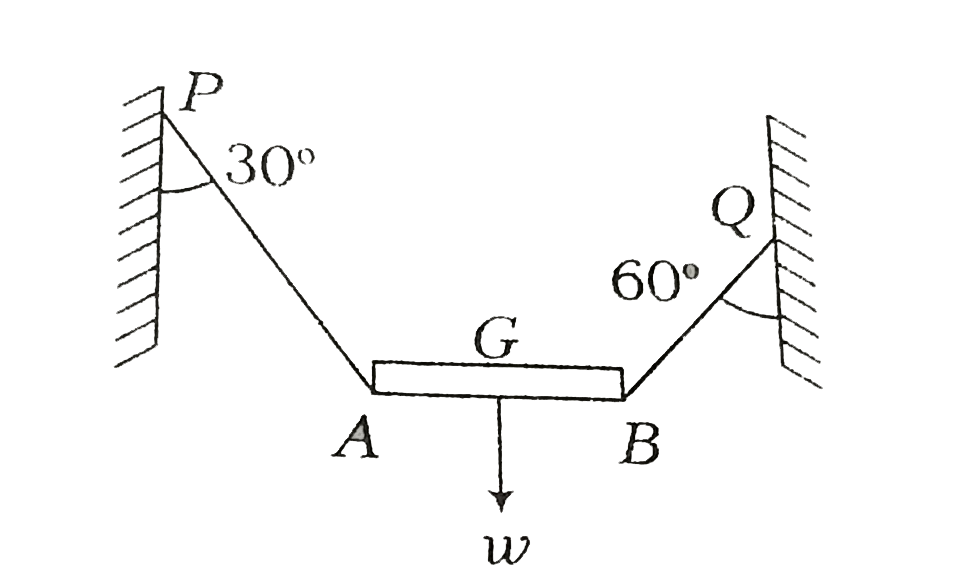
View SolutionA weight w is suspended from the midpoint of a rope, whose ends are at the same level. In order to make the rope perfectly horizontal, the force applied to each of its ends must be
View SolutionThe adjacent figure is the part of a horizontally stretched net. section AB is stretched with a force of 10 N . The tensions in the sections BC and BF are
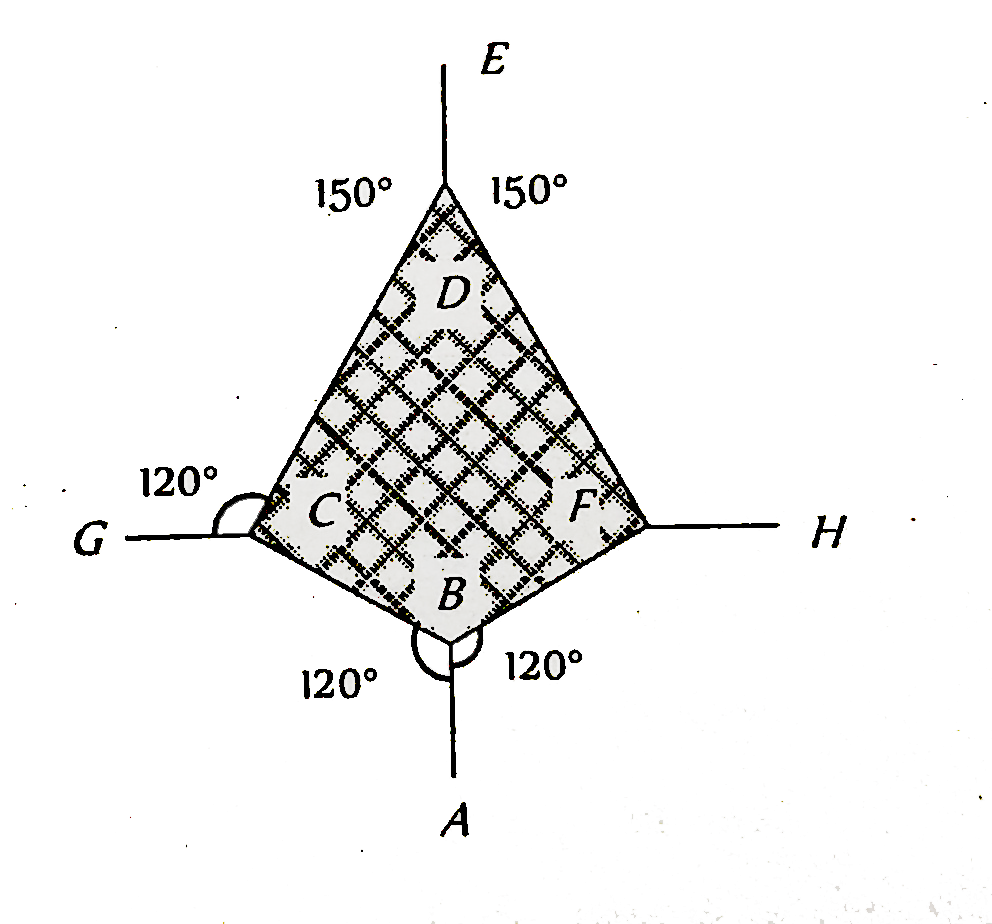
View SolutionTwo particles of equal mass are connected to a rope AB of negligible mass, such that one is at end A and the other dividing the length of the rope in the ratio 1:2 from A.The rope is rotated about end B is a horizontal plane. Ratio of the tensions in the smaller part to the other is (ignore effect of gravity)
View SolutionWhen a force F acs on a body of mass m the acceleration product in the body is a . If htree equal forces `F_(1)=F_(2)=F_(3)=F` act on the same body as shown in figure the accleration produced is
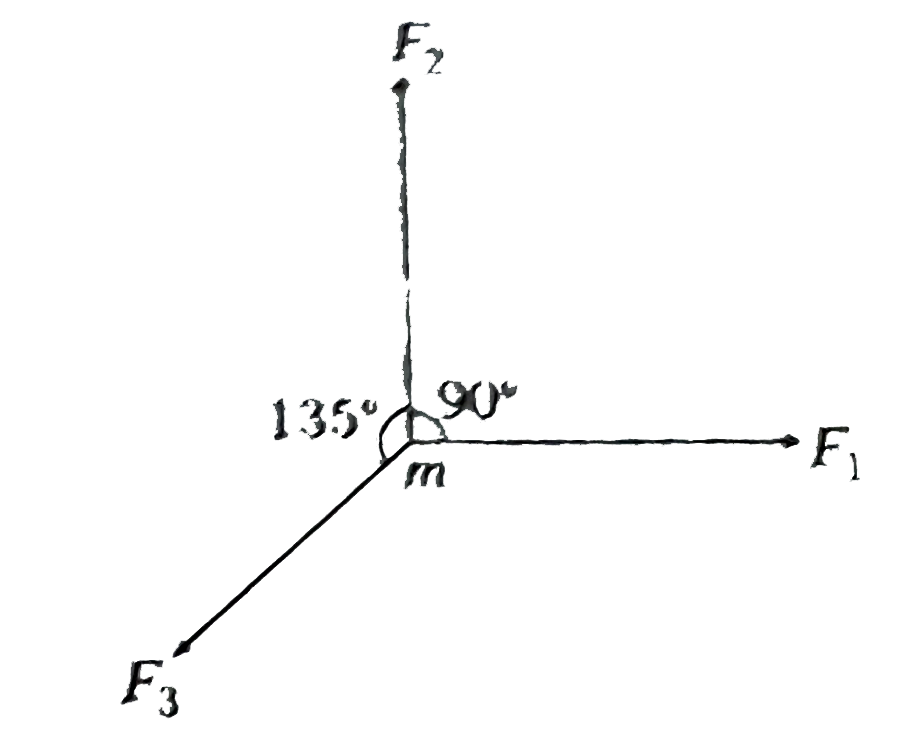
View SolutionThree forces acting on a body are shown in figure. To have the resultant force only along the y-directon, the magnitude of the minimum additional force needed si
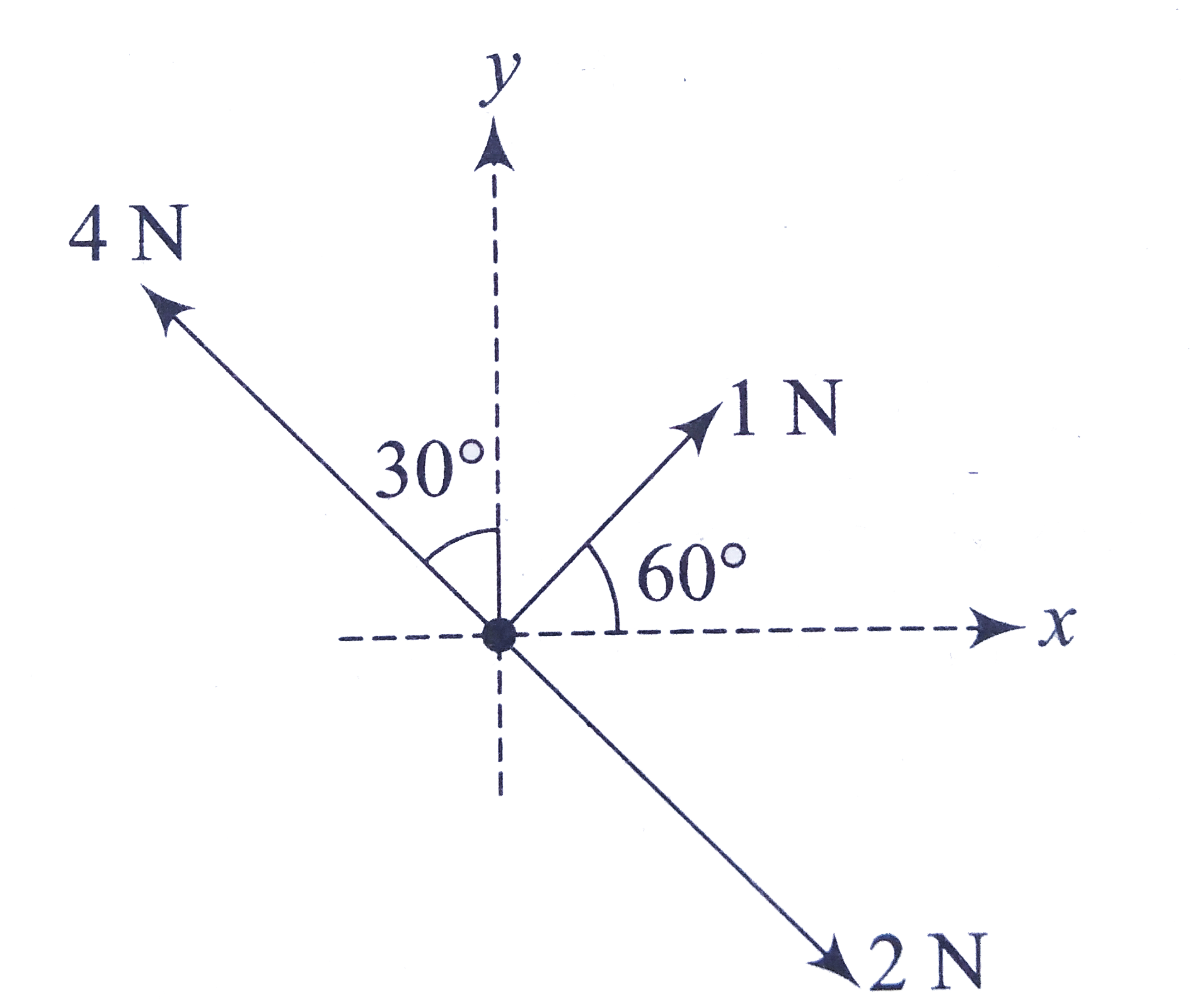
View SolutionTwo equal forces are acting at a point with an angle `60^(@)` between them. If the resultant force is equal to `4sqrt(3)N`, the magnitude of each force is
View SolutionA body of mass 60 kg suspended by means of three strings, P, Q and R as shown in the figure is in equlibrium. The tension in the string P is
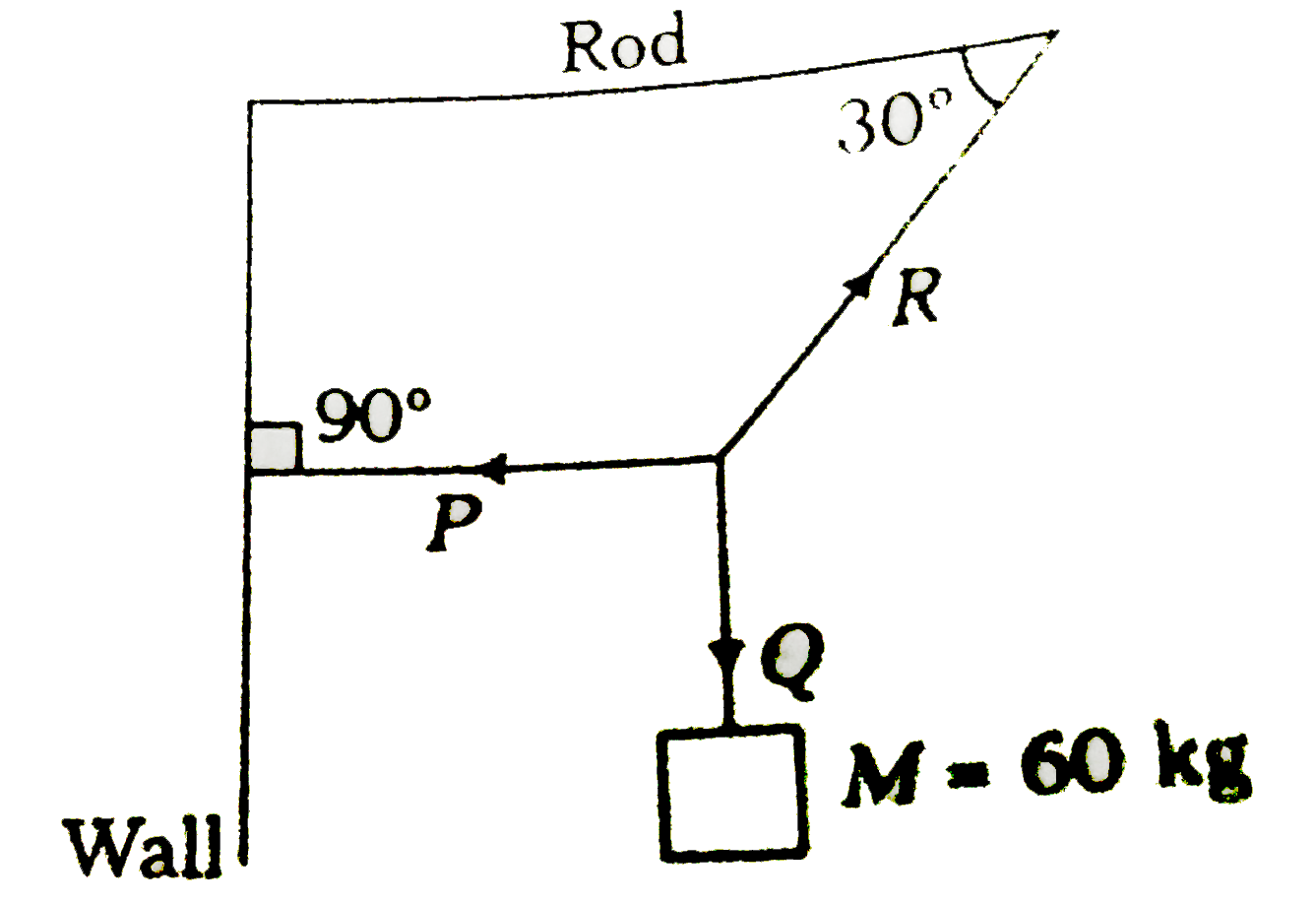
View SolutionA body is under the action of two mutually perpendicular forces of 3 N and 4 N. The resultant force acting on the body is
View SolutionA ball of mass `1kg` hangs in equilibrium from two strings as shown in If `g = 10m//s^(2)` what are the valuse of tension in strings `OA` and `OB`
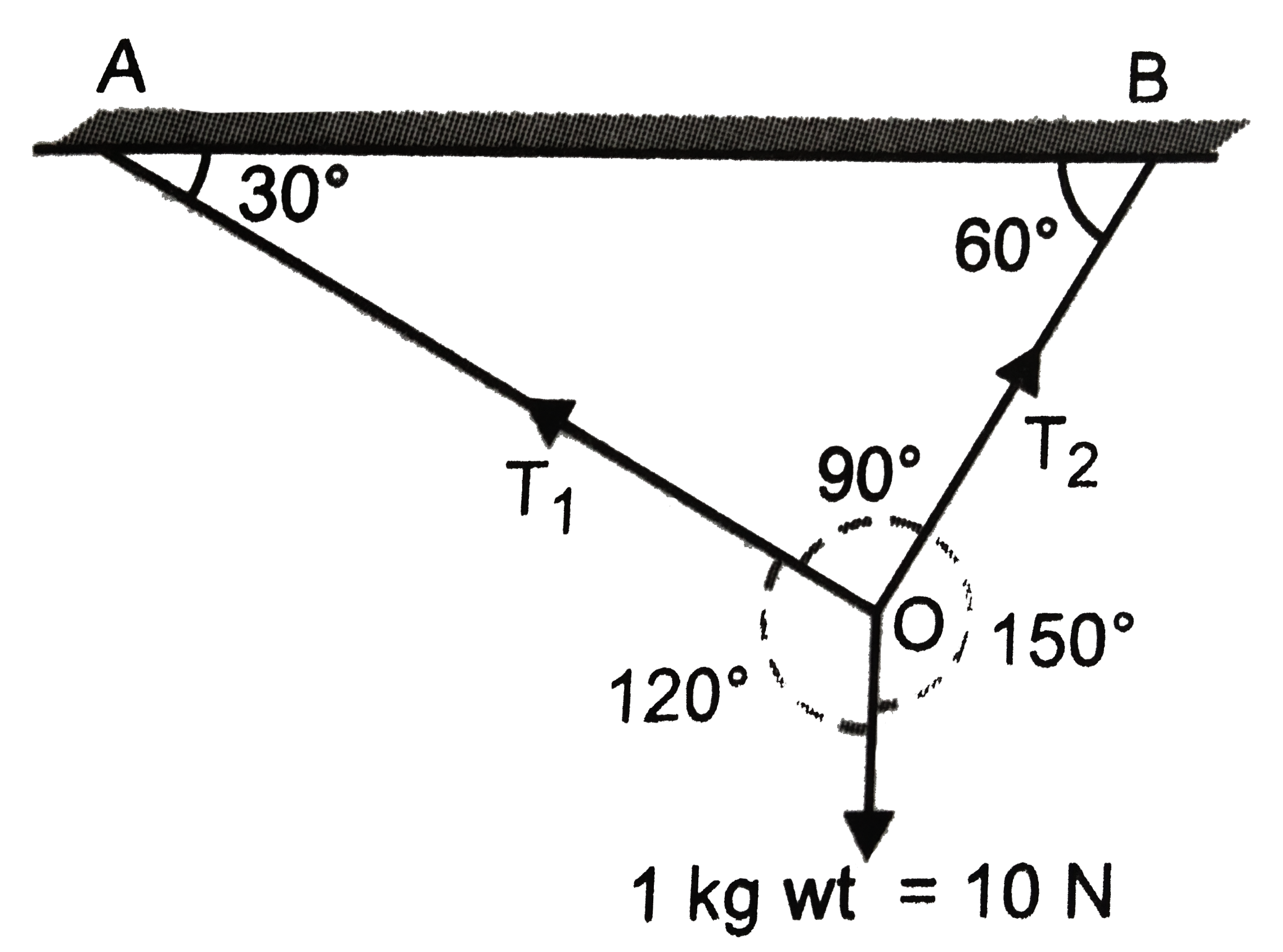 .
.
View SolutionA mam of mass 50 g stands on a frame of mass 30 g. He pulls on a light rope which passes over a pulley. The other end of the rope is attached to the frame. For the system to be in equilibrium what force man must exert on the rope?

View Solution
Check point 5.2 questions and complete solutions for chapter LAWS OF MOTION of DC PANDEY ENGLISH of Class 11
All Exercises from DC PANDEY NEET Class 11 PHYSICS LAWS OF MOTION
- Assertion And Reason
- Chapter exercises (A) Taking it together
- Check point 5.1
- Check point 5.2
- Check point 5.3
- Check point 5.4
- Comprehension
- Example
- Exercise 8.1
- Exercise 8.2
- Exercise 8.3
- Exercise 8.4
- Exercise 8.5
- Match the columns
- Medical entrances gallery
- Miscellaneous Examples
- Objective Question
- Single Correct
- Solved Examples
- Subjective Question